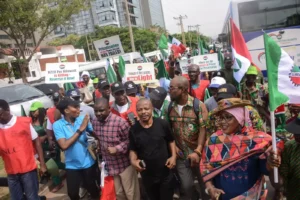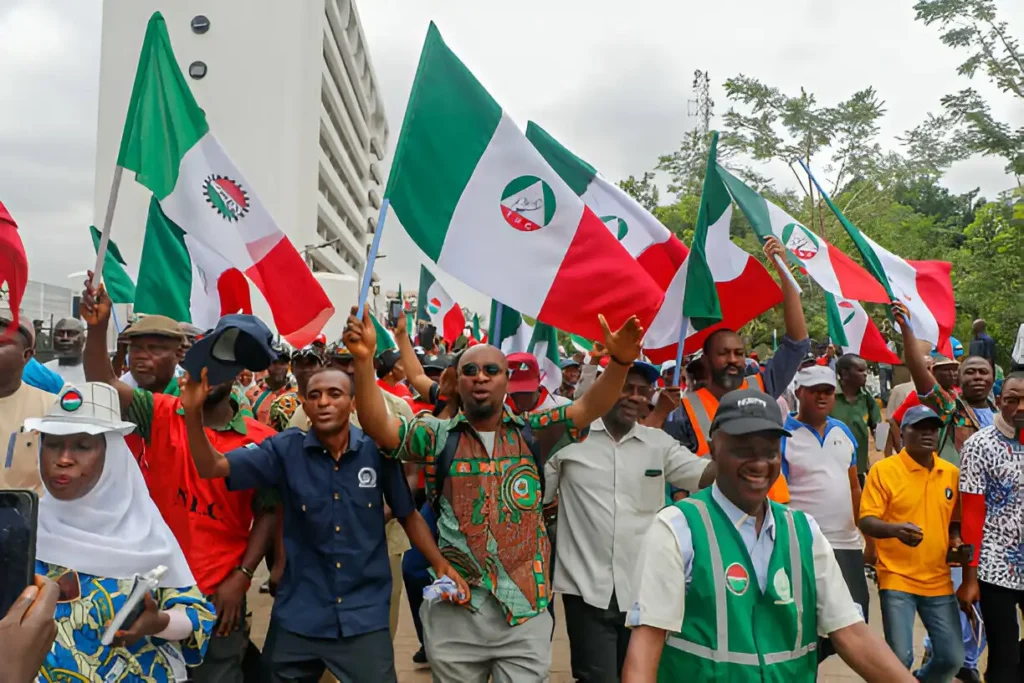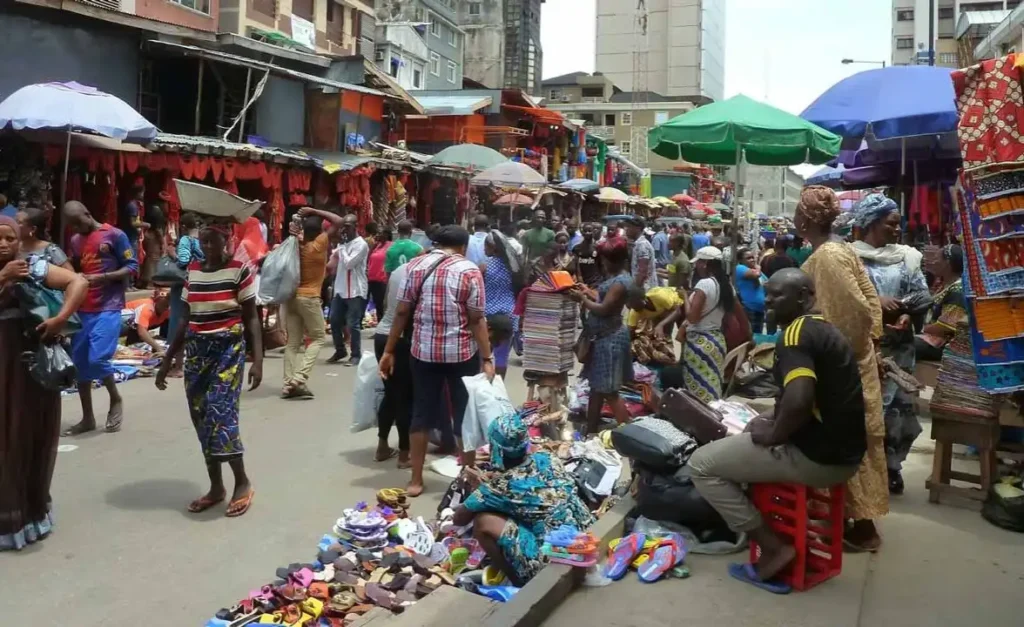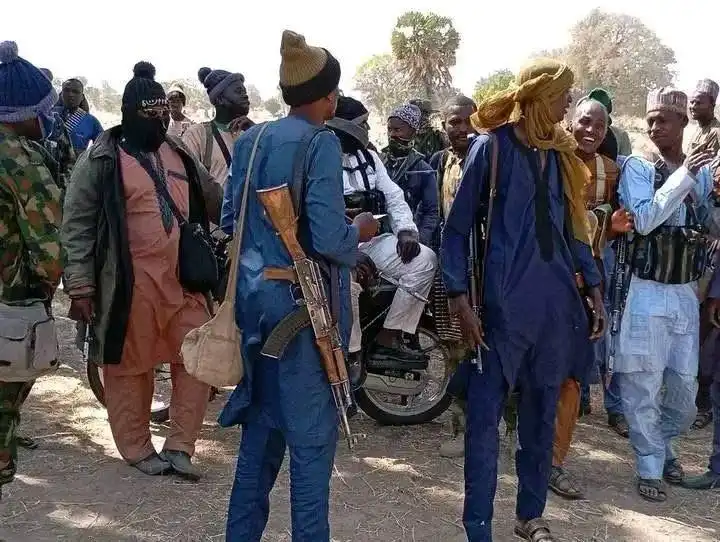On Monday, June 5, 2023, Nigeria witnessed a large-scale industrial shutdown as workers across key sectors launched a general strike to demand a substantial increase in the national minimum wage. The protest action, led by the Nigeria Labour Congress (NLC) and Trade Union Congress (TUC), brought activities in government offices, schools, airports, hospitals, and courts to a halt nationwide.
The strike followed a breakdown in negotiations between labour leaders and government representatives over what many described as an unsustainable minimum wage of ₦30,000, which had remained unchanged since 2019 despite rapid inflation and rising living costs.
Nationwide Shutdown Cripples Major Services
Public services were disrupted across the country. In Abuja, Lagos, Port Harcourt, and other cities, government offices remained locked while civil servants joined picket lines. Schools were closed, and several state-owned hospitals scaled down operations, attending only to emergencies.
At major airports like Murtala Muhammed International Airport and Nnamdi Azikiwe International Airport, air traffic controllers and aviation unions joined the strike, leading to delayed and cancelled flights. Judicial activities also came to a standstill, with courtrooms shuttered as judiciary workers joined the action.
The general strike marked one of the most coordinated and impactful demonstrations by Nigerian workers in recent years, sending a powerful message about their grievances and determination for better wages.

Labour Insists on New Minimum Wage Amid Rising Cost of Living
Labour leaders demanded an upward review of the national minimum wage to reflect the country’s economic realities. With inflation rates hovering above 22% in mid-2023 and the removal of fuel subsidies worsening the financial burden on households, unions argued that ₦30,000 was no longer tenable as a livable wage.
The Nigeria Labour Congress had initially proposed a new minimum wage of ₦60,000 to ₦80,000, while the government countered with significantly lower offers. This disparity prolonged negotiations and heightened tensions.
According to NLC President Joe Ajaero, “The current wage cannot meet even the most basic needs of a Nigerian family. Workers are starving, yet expected to perform miracles under these economic conditions.”
Government Engages in Emergency Talks to Avert Prolonged Crisis
Faced with nationwide paralysis, the federal government quickly convened emergency negotiations with labour representatives. Over two days of intense dialogue, a breakthrough was finally achieved.
On June 6, 2023, both parties reached a temporary agreement, under which the federal government committed to:
-
Review and implement a new minimum wage within a stipulated timeframe
-
Set up a Tripartite Committee consisting of government, labour, and private sector representatives
-
Provide immediate relief measures including wage awards and transport allowances pending the full implementation of the new wage
Labour leaders agreed to suspend the strike for one week to allow the government to begin fulfilling its commitments.
Public Reaction: Hope Mixed with Skepticism
While some Nigerians welcomed the resolution, others expressed doubts about the government’s willingness to keep its promises. Past experiences of delayed implementation and broken agreements have left many skeptical.
“We’ve seen this before—agreements signed but never honored,” said one civil servant in Lagos. “We’ll believe it when we see the new wage reflected in our pay.”
However, there was also hope that the swift action taken by the unions would force the government to prioritize the welfare of workers more seriously. Many called for stronger mechanisms to ensure compliance and transparency in the wage review process.
Ongoing Monitoring and Future Engagements
Labour unions stated they would continue to monitor the situation closely and would not hesitate to resume the strike if the government failed to act in good faith.
“The strike is suspended, not called off,” warned TUC President Festus Osifo. “We will not accept cosmetic solutions. Nigerian workers deserve dignity and a living wage.”
The government, in turn, promised to expedite the process and collaborate with stakeholders to produce a fair and sustainable wage framework that aligns with economic conditions.
Conclusion: A Turning Point for Labour Relations?
The general strike underscored the deep economic distress faced by Nigerian workers and the critical importance of labour unions in advocating for better conditions. As inflation bites harder and public dissatisfaction grows, the resolution of the minimum wage dispute offers a chance for government and labour to build a new foundation for collaboration.
Whether this moment marks a true turning point or merely a pause in ongoing labour unrest will depend on the government’s commitment to delivering tangible change in the lives of workers across the nation.






